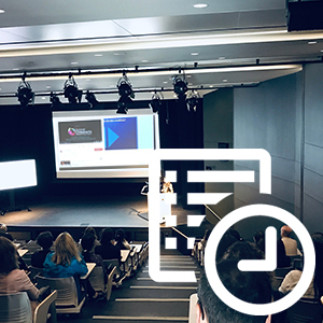Conférence scientifique du vendredi midi › Engineering new biomaterials for diagnostic and therapeutic use
Conférencier
- Géraldine Merle, PhD
- Professeure adjointe, Département de chirurgie, Faculté de médecine, Université McGill
- Chercheure, Hôpital général de Montréal
Scientific Conference of Friday Noon › Engineering new biomaterials for diagnostic and therap
Dr. Geraldine Merle received her PhD in Materials Science from University of Montpellier II, France. There she developed a novel concentric and implantable biofuel cell which generated electrical energy from electrochemical reduction of oxygen and oxidation of glucose. She joined the Department of Chemical Engineering, University of Twente, Netherlands, and worked for FujiFilm as a postdoctoral fellow in 2008 on membrane for energy and gas separation applications. After an appointment as a director of the Center for Polymer Technology at DWI – Leibniz Institute for Interactive Materials in Germany, she joined McGill University in 2012. At McGill, she developed innovative nano/microscale electrocatalysts for sensing, energy production and pollution remediation. In 2015, she joined the Faculty of Medicine at McGill University as a research assistant to learn more about point-of-care diagnostics and identify needs in hospital. There, she was involved in clinically relevant projects including novel bone growth therapies, pressure sensor, and bacterial infection etc. Since 2017, she has been appointed Assistant Professor at McGill University in the Department of Surgery where she applies her unique knowledge in biosensors, biomolecule immobilization, polymer and nano-materials synthesis to clinical needs in surgery and regenerative medicine. Her laboratory is working mainly on two different areas: development of low cost and easy to use diagnostic devices and novel musculoskeletal therapies to prevent infection and accelerate bone growth, for example cold therapy and ionic stimuli. Her FRQ-S Chercheur Boursier involves the development of functional nanomaterials to develop rapid electrochemical analytical solutions that can be easily implemented in either the clinical environment or remote areas. This includes the implementation of electrochemistry for infection and tumour detection during surgery as well as the development of minimally invasive sensors for traumatic brain injury and wireless microsensors to continuously monitor compartment pressure in trauma victims.

